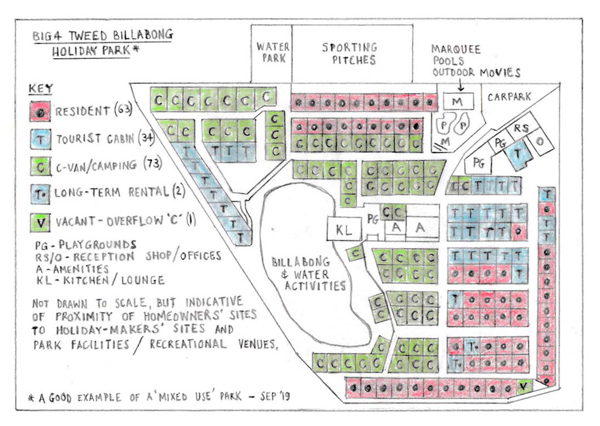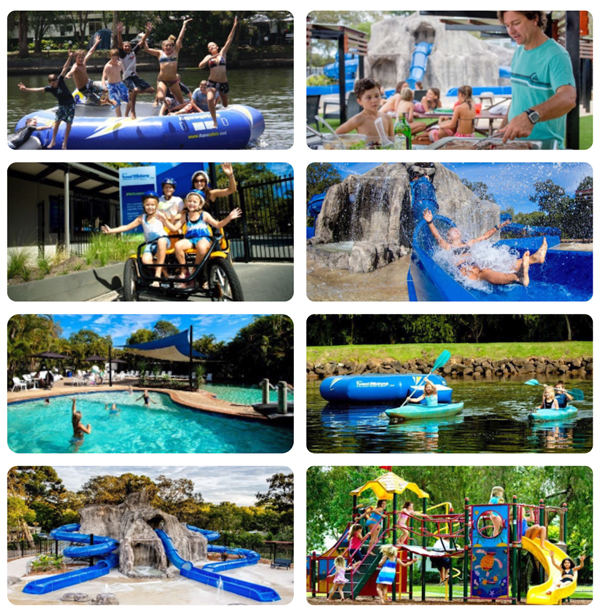Community rules
01/09/2020
We could write three or four articles about community rules and still not address all of the confusion and questions that arise out of Part 8 of the Residential (Land Lease) Communities Act (RLLC Act). We have written articles before on this subject and no doubt will write more in the future, but in this article we are going to focus on compliance with community rules.
The RLLC Act enables written community rules to be made about the use, enjoyment, control and management of a community. The community rules must be fair and reasonable and clearly expressed.
Compliance with community rules is required by the residents, owner and operator of a community. Additionally, each resident must use reasonable endeavours to ensure any occupants living with them and anyone else they invite into the community also complies with the community rules.
The operator must use reasonable endeavours to ensure compliance with the community rules by all residents and occupants, employees and anyone else the operator invites into the community.
It is abundantly clear that anyone who is in the community as a resident, owner, operator or employee, occupant or guest is required to comply with the community rules. Unless this were the case, community rules would not only be unfair they would be meaningless. Taking speed limits as an example – a community rule setting a speed limit would be pointless if only some people had to comply and others could drive at whatever speed they chose. The community would be unsafe regardless of the community rule, rendering the rule futile.
Noise is another example. Many communities have a community rule requiring all excessive noise to cease by a certain time of night. But if the rule does not apply to everyone it may as well not exist because there will be noise from those who are not required to comply.
We think the RLLC Act provides a clear and sensible approach to compliance with community rules. Why then, is this such a vexed area when it comes to certain rules? We are of course talking about age restriction rules – rules that say a home owner must not permit anyone under a certain age to occupy the premises.
The Tenants’ Union recognises that many home owners choose to live in land lease communities for the lifestyle, to live with like-minded people of a similar age. But, when a community provides holiday accommodation alongside residential accommodation it is our view the Act requires, and it is fair and reasonable, that there is just one set of rules that apply to everyone.
Many operators disagree and believe they can have rules that apply only to residents, such as an age restriction, or a no pets rule. This very situation arose at Tweed Billabong in 2019 when the operator notified home owners that they would be introducing a new community rule that would restrict the occupants of residential sites to persons of at least 55 years of age.

Tweed Billabong is a mixed-use community with 172 sites and extensive common areas and facilities including a waterpark, children’s play areas and a lake. Of the 172 sites, 66 are long-term and 106 are tourist sites. The residential area is not separated from the tourist area.

The operator was clear that the proposed community rule would apply only to home owners, which made little or no sense to some of them. Home owners and anyone living with them would have to be at least 55 years of age but the occupants of the cabin next door or in the next street could be of any age. Not only does the rule make no sense in such a mixed-use community, it is manifestly unfair. Home owners would not be able to have their grandchildren living with them but the community is filled with children during school holidays and at weekends. Like rules about speed limits and noise – this rule makes no sense and is unfair if it does not apply to everyone in the community.
The Tribunal
The residents committee organised meetings of home owners and met with the operator regarding the proposed rule but the operator refused to reconsider. In October 2019 a home owner made an application to the NSW Civil and Administrative Tribunal (NCAT) seeking an order that the rule be set aside.
At the hearing the home owner was represented by Sandy Gilbert from the Tweed Residential Park Homeowners Association. Ms Gilbert argued the proposed rule was not fair and reasonable, not clearly expressed and was inconsistent with antidiscrimination law. The matter was heard on 4 February 2020 and on 13 March the Tribunal handed down the decision. The Tribunal found the proposed rule is inconsistent with the Anti Discrimination Act 1977 (NSW) and not fair, nor reasonable, nor clearly expressed as required by the RLLC Act. The rule was set aside.
The operator appealed the decision of the Tribunal and the Appeal Panel heard the matter on Thursday 18 June 2020. The decision is reserved – still to be handed down.
This article was originally published in Outasite magazine, issue 6, August 2020.
